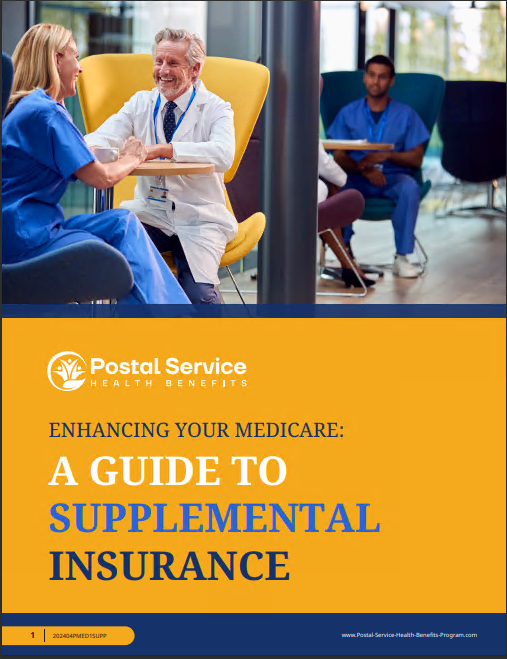Key Takeaways:
- While the Postal Service Health Benefits (PSHB) program offers robust medical coverage, it does not provide comprehensive long-term care (LTC) services. Postal retirees must explore other options for full LTC coverage.
- Understanding Medicare’s role and considering standalone long-term care insurance is essential for postal retirees looking to secure coverage for potential aging or disability-related care needs.
Will PSHB Cover Your Long-Term Care Needs? What Postal Retirees Should Consider Now
As the Postal Service Health Benefits (PSHB) program prepares to launch in January 2025, postal employees and retirees must review their health care options, especially in relation to long-term care (LTC). While PSHB provides comprehensive medical benefits, it does not fully cover the type of custodial care many retirees may require as they age. For postal retirees planning for the future, it’s essential to understand what PSHB does and doesn’t cover, and to consider additional options like Medicare and standalone long-term care insurance.
What is Long-Term Care, and Why is It Important?
Long-term care (LTC) refers to a range of services that help individuals manage daily living activities over an extended period, typically when they can no longer perform these tasks independently due to age, illness, or disability. LTC can include:
- Assistance with daily activities: Bathing, dressing, eating, using the toilet, and mobility assistance.
- In-home care: Non-medical care provided by professional caregivers or family members.
- Residential care: This includes assisted living facilities and nursing homes that offer both personal care and basic medical supervision.
With the costs of LTC on the rise—particularly in nursing homes or long-term care facilities—it’s essential for retirees to plan ahead. Many people underestimate their future needs, and without adequate insurance, long-term care costs can rapidly deplete retirement savings.
What Does PSHB Cover for Retirees?
The PSHB program offers a range of health care benefits for postal workers and retirees, similar to the Federal Employees Health Benefits (FEHB) program. PSHB focuses on medical care, which includes:
- Hospitalization
- Doctor visits
- Prescription medications
- Emergency care
- Short-term rehabilitation services
For retirees who need short-term skilled nursing care following surgery or an illness, PSHB may cover a limited stay in a skilled nursing facility. These services generally have time limits, often capped at 30 to 100 days, and are only covered if the care is medically necessary and focused on rehabilitation. Once these limits are reached, or if the care shifts from medical to personal custodial care, PSHB will no longer cover the costs.
What PSHB Doesn’t Cover: Comprehensive Long-Term Care
The biggest gap in PSHB coverage is its lack of custodial long-term care, which encompasses the assistance many retirees need for basic daily activities. Unlike medical services, custodial care focuses on helping individuals with tasks such as bathing, dressing, and eating, rather than treating a medical condition. This type of care can be provided in various settings, including:
- Home health care: Help from a home health aide for tasks like dressing or mobility.
- Assisted living: Residential communities offering daily care services but not necessarily intensive medical oversight.
- Nursing homes: For those who need more hands-on assistance and medical care over a longer period.
Because PSHB focuses on health services rather than long-term support, it leaves a significant coverage gap for postal retirees who might need ongoing care due to aging or chronic conditions.
What About Medicare?
For postal retirees, Medicare becomes a crucial part of health care coverage after age 65. Medicare offers important benefits, but it, too, has limitations regarding long-term care:
- Medicare Part A: Covers inpatient hospital care, short-term skilled nursing care (following a qualifying hospital stay), and hospice care. However, like PSHB, it does not cover long-term custodial care.
- Medicare Part B: Covers outpatient services like doctor visits, preventive services, and medical equipment. It doesn’t cover non-medical services such as assistance with daily living activities.
Many retirees mistakenly believe that Medicare will cover all long-term care needs, but in reality, Medicare focuses on acute medical care rather than ongoing custodial support. Once the Medicare coverage for skilled nursing ends, retirees are responsible for paying out of pocket or through additional insurance.
The Importance of Long-Term Care Insurance
Given the gaps in both PSHB and Medicare, postal retirees should seriously consider long-term care insurance (LTCI) as a way to protect themselves from high out-of-pocket costs associated with long-term care. LTCI provides coverage for services that PSHB and Medicare do not, including:
- In-home custodial care: Assistance with daily living tasks provided by professional caregivers.
- Assisted living facilities: Long-term residential care focused on providing personal assistance rather than intensive medical treatment.
- Nursing home care: Extended stays in nursing homes for individuals requiring round-the-clock care.
For postal retirees, the Federal Long Term Care Insurance Program (FLTCIP) is an option worth exploring. FLTCIP offers LTCI policies specifically designed for federal employees, postal workers, retirees, and their eligible family members. It provides coverage for in-home care, assisted living, and nursing home care, ensuring retirees have access to essential support services.
Factors to Consider When Planning for Long-Term Care
With rising life expectancies and growing health care costs, planning for long-term care is more important than ever. Here are some key factors postal retirees should consider:
-
The Cost of Long-Term Care: The cost of nursing homes, assisted living, and in-home care can quickly add up. The average annual cost for a private room in a nursing home can easily exceed $100,000. Without LTCI, these expenses can significantly impact retirement savings and financial security.
-
Family Support: While some retirees may rely on family members for care, it’s important to consider the potential burden this places on loved ones. Long-term caregiving can be physically and emotionally taxing, and many family members may not have the resources or availability to provide full-time support.
-
The Right Timing for LTCI: The best time to purchase long-term care insurance is typically before it is needed, as premiums are lower when purchased at a younger age. Waiting too long can result in higher premiums or even ineligibility if health conditions develop.
-
Health and Longevity: Retirees in good health today may still face long-term care needs in the future. Planning for the potential need for care due to accidents, aging, or chronic illnesses is crucial to ensuring financial stability.
-
Alternative Financial Solutions: Some retirees may choose to self-fund their long-term care costs by setting aside savings or using home equity through a reverse mortgage. However, these options carry risks and should be carefully evaluated in consultation with a financial advisor.
Making the Most of PSHB and Other Benefits
While PSHB does not provide comprehensive long-term care coverage, retirees can maximize its benefits by using it alongside Medicare and long-term care insurance. PSHB will still cover the medical care that retirees need, including hospital visits, doctor’s appointments, and short-term skilled nursing care. For other services, like custodial care or assisted living, LTCI can fill in the gaps.
Retirees should also consider Medicare Advantage plans, which sometimes offer additional services such as home health aides, transportation to medical appointments, or wellness programs. While these plans won’t cover full-time custodial care, they may offer valuable supplemental benefits.
Conclusion: Preparing for Long-Term Care Under PSHB
As postal retirees transition to the PSHB program in 2025, it’s essential to understand what the program covers and where the gaps lie—especially when it comes to long-term care. While PSHB will provide essential medical coverage, it does not offer comprehensive support for custodial care, which many retirees may need as they age. To safeguard their financial future and ensure access to necessary care, retirees should consider enrolling in long-term care insurance, either through FLTCIP or private providers.
Taking the time to review your options, understand the limitations of PSHB and Medicare, and plan for future care needs will provide peace of mind for both you and your family. Long-term care insurance offers a crucial safety net, allowing retirees to maintain their independence and quality of life without depleting their savings.
Understanding Long-Term Care Needs as a Postal Retiree
Planning for the future is key, and as PSHB transitions into place, postal retirees should ensure they are fully prepared for long-term care needs. Explore your options for additional coverage now to protect your health and finances in the years to come.





